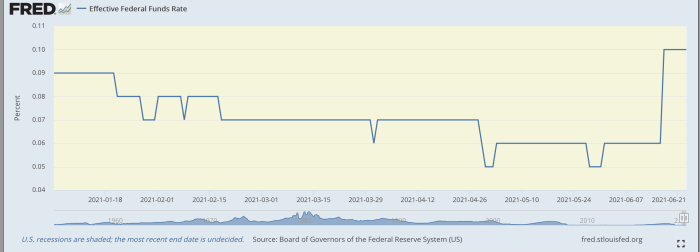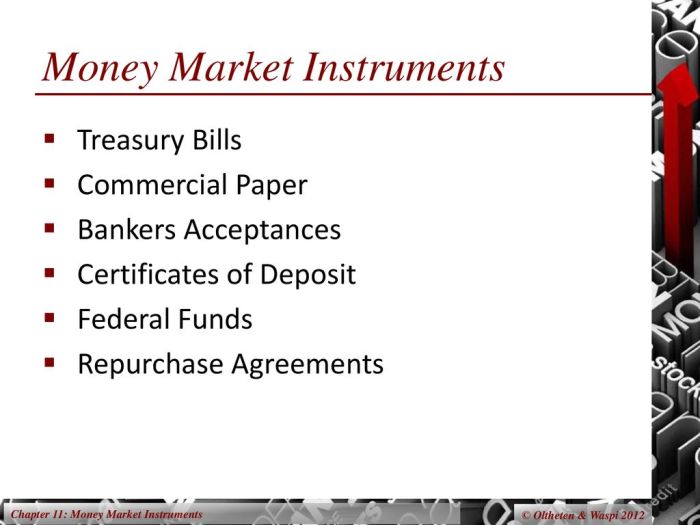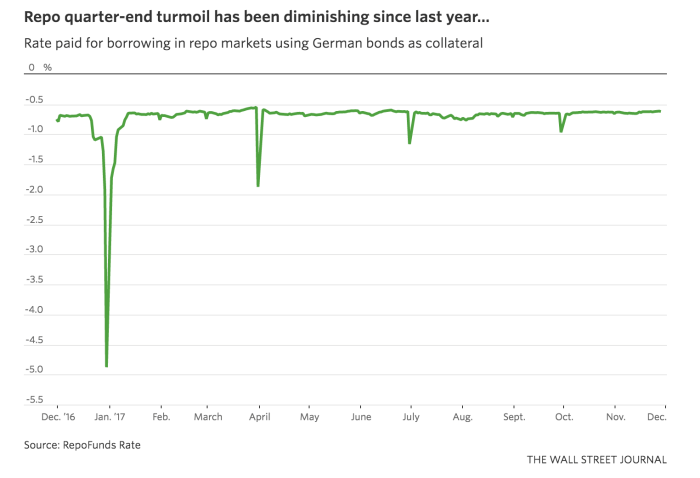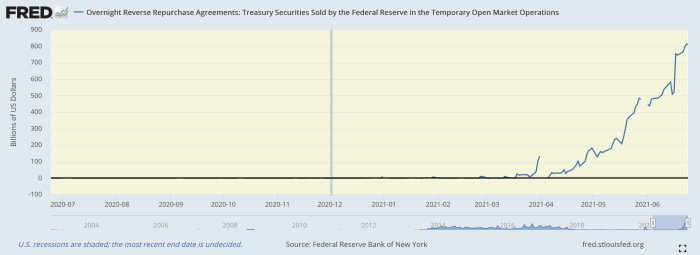Rates on federal funds and repurchase agreements are stated, laying the foundation for an in-depth exploration of their significance and impact on the financial landscape. This discourse delves into the intricacies of these rates, examining their functions, interrelationships, and far-reaching consequences.
The federal funds rate, a crucial monetary policy tool, serves as the benchmark for short-term interest rates. Repurchase agreements, on the other hand, facilitate short-term borrowing and lending of securities. Understanding the dynamics between these rates is essential for deciphering their influence on the financial markets and the broader economy.
Federal Funds Rate

The federal funds rate is the interest rate at which banks lend reserve balances to each other overnight. It is set by the Federal Reserve and is a key tool for managing the money supply and inflation.
When the Federal Reserve wants to increase the money supply, it will lower the federal funds rate. This makes it cheaper for banks to borrow money from each other, which in turn makes it cheaper for businesses and consumers to borrow money.
As a result, spending increases and the economy grows.
When the Federal Reserve wants to decrease the money supply, it will raise the federal funds rate. This makes it more expensive for banks to borrow money from each other, which in turn makes it more expensive for businesses and consumers to borrow money.
As a result, spending decreases and the economy slows down.
Factors that Influence the Federal Funds Rate, Rates on federal funds and repurchase agreements are stated
- The level of inflation
- The level of economic growth
- The expectations of market participants
- The actions of other central banks
Repurchase Agreements: Rates On Federal Funds And Repurchase Agreements Are Stated

Repurchase agreements (repos) are short-term loans in which one party sells a security to another party with an agreement to buy it back at a specified price on a specified date. Repos are used by banks to manage their liquidity and by investors to earn interest on their cash.
When a bank enters into a repo, it sells a security to a counterparty, such as a money market fund, and agrees to buy it back at a slightly higher price on a specified date. The difference between the sale price and the repurchase price is the interest earned by the counterparty.
Repos are a low-risk investment because the underlying security is collateral for the loan. As a result, repos are often used by investors who are seeking a safe place to park their cash.
Risks and Benefits of Using Repurchase Agreements
- Risks:
- The counterparty may default on its obligation to repurchase the security.
- The value of the underlying security may decline, which could result in a loss for the investor.
- Benefits:
- Repos are a low-risk investment.
- Repos can be used to generate income on cash.
- Repos can be used to manage liquidity.
Relationship between Federal Funds Rate and Repurchase Agreements

The federal funds rate and repurchase agreement rates are closely linked. When the federal funds rate increases, repo rates also tend to increase. This is because banks are more likely to borrow money from each other at the federal funds rate than from other sources, such as repos.
The relationship between the federal funds rate and repo rates is important for the financial markets. This is because repos are a major source of funding for banks and other financial institutions. As a result, changes in the federal funds rate can have a significant impact on the cost of funding for these institutions.
Implications of the Relationship between the Federal Funds Rate and Repurchase Agreement Rates for the Financial Markets
- Changes in the federal funds rate can have a significant impact on the cost of funding for banks and other financial institutions.
- Changes in the federal funds rate can also affect the demand for repos.
- The relationship between the federal funds rate and repo rates is an important factor to consider when making investment decisions.
Market Impact of Changes in Rates

| Banks | Businesses | Consumers | Overall Economy | |
|---|---|---|---|---|
| Increase in Federal Funds Rate | Increased cost of borrowing | Increased cost of borrowing | Increased cost of borrowing | Slowed economic growth |
| Decrease in Federal Funds Rate | Decreased cost of borrowing | Decreased cost of borrowing | Decreased cost of borrowing | Increased economic growth |
| Increase in Repurchase Agreement Rates | Increased cost of funding | Increased cost of borrowing | N/A | Increased cost of credit |
| Decrease in Repurchase Agreement Rates | Decreased cost of funding | Decreased cost of borrowing | N/A | Decreased cost of credit |
Q&A
What is the purpose of the federal funds rate?
The federal funds rate serves as a benchmark for short-term interest rates, influencing the cost of borrowing and lending between banks.
How do repurchase agreements work?
Repurchase agreements involve the sale of securities with an agreement to repurchase them at a specified price and date, effectively facilitating short-term borrowing and lending.
What factors influence the federal funds rate?
The federal funds rate is influenced by economic indicators, inflation, and the Federal Reserve’s monetary policy objectives.